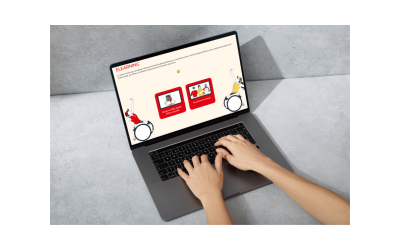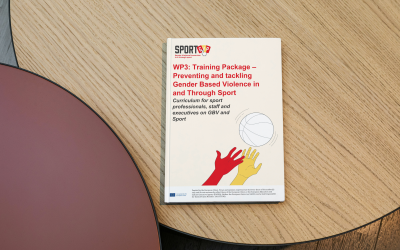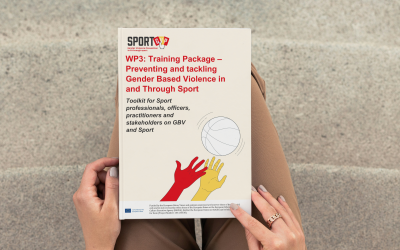
Why should we educate on gender equality, sexuality, and affectivity?
We firmly believe that education for gender equality and equity, understood as the concepts highlighting that women and men, girls and boys and all other genders with different needs and power should have equal conditions, treatment and opportunities for realizing their full potential, human rights and dignity and that differences should be identified and addressed in a manner that rectifies the imbalances.
The stereotyped norms and behaviours that are the cause of any kind of gender-based violence are always influenced by rigid social structures that have always been imposed in society and that determine the emotional and sexual sphere, both in young and adult people.
For this reason, we believe that more and more spaces should be created to reflect on issues such as affectivity and sexuality, gender roles and stereotypes, and the different types of violence that result from them.
At school, for example: this is where people begin to form their identity and personality, and where they become tolerant, responsible, self-confident people, without limits or constraints. It is necessary to start at school to reverse the course and deconstruct these stereotypes, roles, and gender norms, which even during adolescence 'must' be adopted to be accepted in the society in which they live.
But also in other contexts by:
- strengthening the competencies of support services, we improve the lives of people who have suffered different types of violence;
- networking at local, national, and international level, we ensure that knowledge and good practices on prevention, awareness-raising and support are shared and replicated;
- developing policy recommendations, we support gender equality in different areas and promote changes at political level.
We believe that it is only through knowledge, dialogue, and experimentation that we can raise awareness on these issues and create real change in society, aimed at combating inequalities, discrimination, and gender-based violence.
What do we do?
Through prevention, information, awareness-raising, and support, CESIE works closely with the school world and with professionals to address these issues and support change.


By actively involving schools
We visit classrooms to analyse gender stereotypes, roles and norms, in order to overcome them; to talk about sexuality and affectivity with young people to guide them towards the creation of healthy relationships that aim at the well-being of all; to teach them to recognise gender-based violence and to fight it;

By raising awareness and training adults
We provide tools and methodologies to school staff, families, educators, service providers, professionals of all kinds and policy makers, so that they themselves can convey inclusive, positive messages towards sexuality and affectivity, and be able to identify and respond adequately to episodes of gender-based violence in any context.
Events
News & information
Strengthening skills to fight trafficking: our experience in Athens with USSM Palermo and Orazio Campo Juvenile Chamber
Comparing multidisciplinary experiences, operational approaches and innovative digital tools, developed at European and international level, to combat complex phenomena such as trafficking in human beings, online grooming, and other forms of violence and child...
Recognising and supporting caregivers: closing gender gaps in care work for a more equal and fairer system
Who cares for the caregivers? It’s a question that strikes at the heart of our societies, especially in an ageing Europe where care work, often invisible, still falls largely on women. In Italy, long-term informal care, typically unpaid and family-based, represents a...
Making care visible and promoting gender balance in the care sector for people with disabilities
Gender inequality persists in the care sector, both formal and informal, where women continue to bear the majority of care responsibilities, often with lower wages and limited career opportunities. To bridge this persistent gender gap and improve conditions for those...
Interactive resources and content
Sport GVP – E-learning platform
The Sport GVP e-learning platform adopts a gamification-based approach and features various interactive scenarios and learning activities to explore the relationship between gender-based violence (GBV) and sport.
Sport GVP – Curriculum for Sport professionals, officers, practitioners and stakeholders on the prevention of Gender Based Violence in sport
6 modules of 2 hours each, combining theory and practice to develop skills and promote safe, inclusive sporting environments.
Sport GVP – Toolkit for Sport professionals, officers, practitioners and stakeholders on the prevention of Gender Based Violence in sport
Practical resources, educational activities, support tools and guidelines to promote safe, inclusive and aware sports environments.
Do you want to be part of this process?
Consult the available resources, find out about current initiatives, or write to us for more information:












